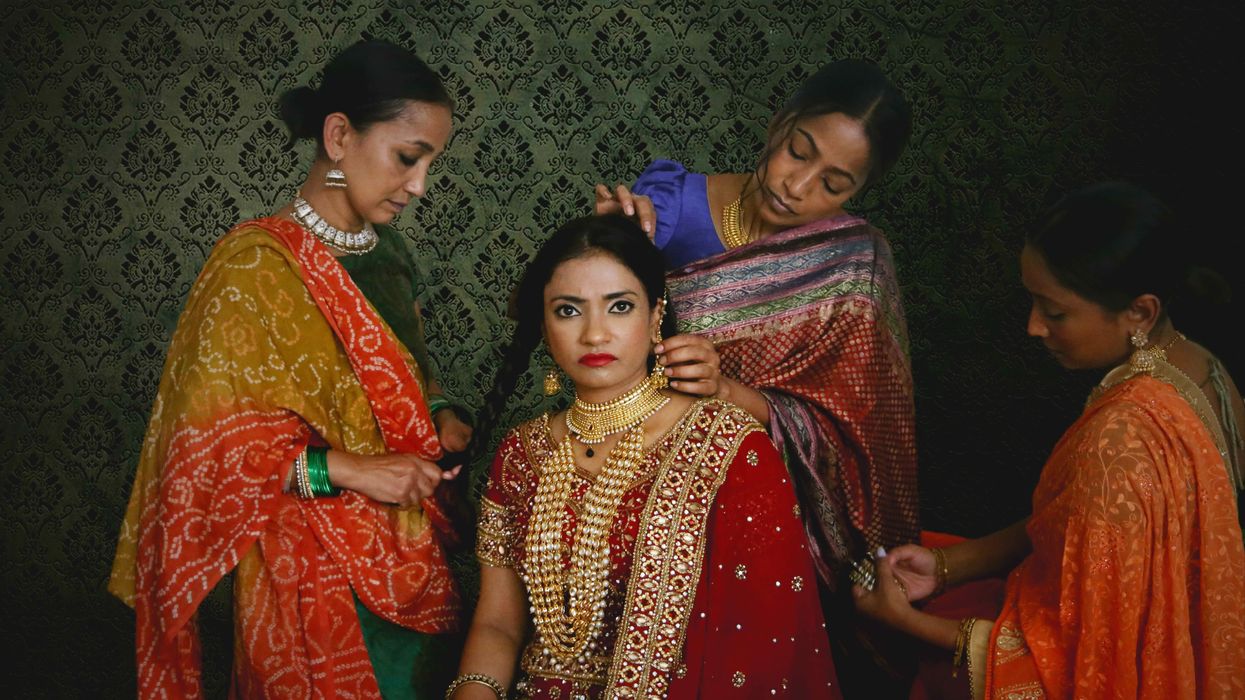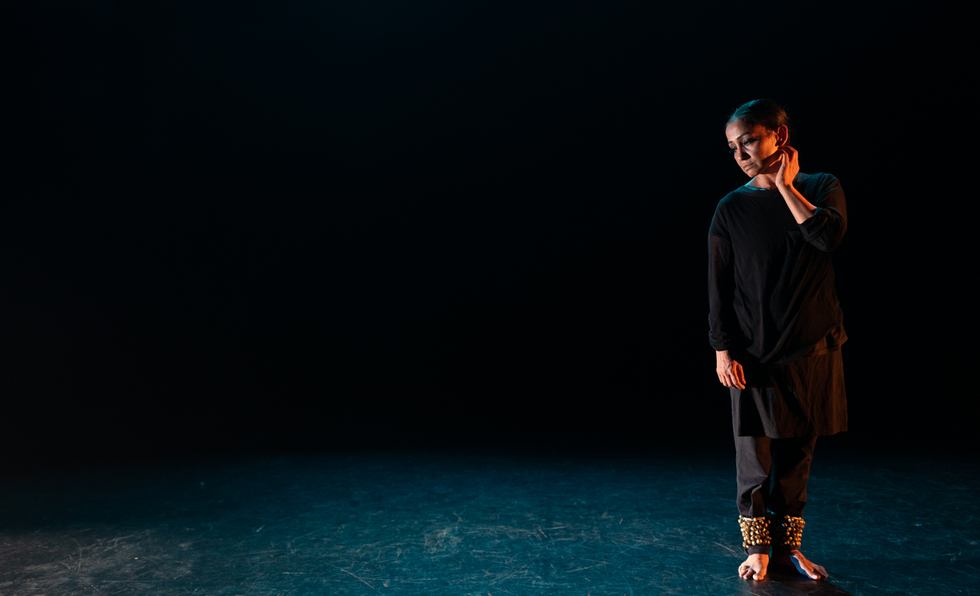A NEW dance-theatre production explores how women enforce patriarchal rules upon their daughters and the consequent impact on family and societal structures, its artistic director said.
Choreographer Amina Khayyam uses Kathak, the classical Indian dance in her new production – Bibi Rukiya’s Reckless Daughter – to raise awareness about gender prejudice in ethnic communities.
In an interview with Eastern Eye, Khayyam also stressed the importance of mutual support among women during challenging situations.
Loosely based on Federico García Lorca’s The House of Bernarda Alba, the 70-minute show is set in modern, inner-city migrant communities.
The story centres on widow Bibi Rukiya, who restricts her three daughters’ freedom to maintain family honour and secure marriages. One daughter challenges her mother’s authority and questions her role as a woman.
Khayyam said, “I have a fondness for Lorca and the subjects he covers, particularly because they still resonate in our communities and culture. I work with women’s groups across the UK, particularly those who have difficult backgrounds like domestic violence or mental health issues, and I find those stories from Lorca really resonate with these communities,”
Bibi Rukiya was created over 18 months through workshops with women’s community groups across Britain. Participants collaborated with professional artists from the Amina Khayyam Dance Company to explore mother-daughter relationships.
Khayyam said these shaped the content and ensured the production reflects genuine experiences.
“I take the subject to them and then explore it through movement and storytelling, hearing their perspectives. When these women come back to see the performance, they see themselves and can relate to the stories,” the artist said.
Workshops were conducted in London, Luton and Birmingham for the production and more than 250 women took part.
Khayyam said, “Our show examines how women impose patriarchal rules on their daughters and the consequences thereof. We investigate why women perpetuate these structures and whom they serve by doing so, facilitating self-discovery, rather than providing answers.
“Centuries of conditioning have established clear, hierarchical gender roles in our society. Women who’ve experienced lifelong suffering often expect their daughters and daughters-in-law to endure similar hardships, following the principle, ‘I suffered, so you suffer now’, rather than breaking this cycle.
“We express these revelations through dance, movement and storytelling, bringing professional dancers and female musicians to the stage. Participants are encouraged to articulate their experiences in their native languages – Punjabi, Gujarati, Bengali, Hindi and English – which we then develop into poetry or narrative.”
She added, “We teach Kathak basics and mudras, providing theatrical elements that combine movement and text. While some participants initially resist dancing due to cultural taboos, most ultimately embrace it upon discovering its emotional benefits. We maintain women-only environments to ensure participants feel safe to express themselves freely.”
Khayyam, who is British Bangladeshi, began her Kathak dance training with Alpana Sengupta and progressed to professional level with Sushmita Ghosh at The Bhavan in London.
She then made her professional debut at the Southbank Centre.
Describing the use of Kathak to express complex emotions in the show, she said, “Kathak comes from katha, which means storyteller. We explore many different emotions within our form, and as we are storytellers, it lends itself to tell those stories. “In Kathak, we have many different tools – like spins with rhythmic footwork – as well as storytelling mudras, head gestures; all of this can come into play when we’re creating stories.”
Khayyam said the show uses music, movement and footwork to depict complex themes.
“In one scene there’s a conflict between the mother and the three daughters. We’re adapting it to three daughters as opposed to the five daughters originally in the book. There’s something called sawal jawab – question and answer.
“Through the footwork, the daughters are having a huge head-to-head with each other, and one of the best ways to bring that positively and impactfully is through sawal jawab – asking questions and giving answers – only through footwork.”
Set up in 2013 and based in Slough, the Amina Khayyam Dance Company has 15 pieces of work to its credit, with 160 shows in 40 venues in the UK and abroad.
Khayyam said her hope was for audiences to “go away and think about what they just saw”.
She added, “Sometimes we’re quite blinkered; we just carry on with life without questioning things, and I would like people to be able to question.
“Second, I’d like those south Asian women, both those we’ve worked with and those we haven’t, to be able to stop and think, ‘This is something we have in our community. How do we deal with this? How do we change it? How do we evolve this situation and empower these women who are trapped in it?’ With every show we’ve done in the past, we like to leave a question with the audience.
“It’s also about awareness. Sometimes we walk down the street and there’s a huge tree, but we never notice it – we take it for granted. Then suddenly we look up and think, “Wow, this tree is amazing.” We want to bring this kind of awareness into their lives, to recognise what’s happening and how we can help each other.
“In the workshops with women, I stressed that they need to support each other, because often that support isn’t there. We’re judging a lot, gossiping, and we need to support each other when we see difficult situations. That’s what I would like the show to bring about.”
Bibi Rukiya’s Reckless Daughter will have its premiere at the Birmingham Hippodrome next Thursday (22) and Friday (23), followed by a national tour starting in autumn 2025






